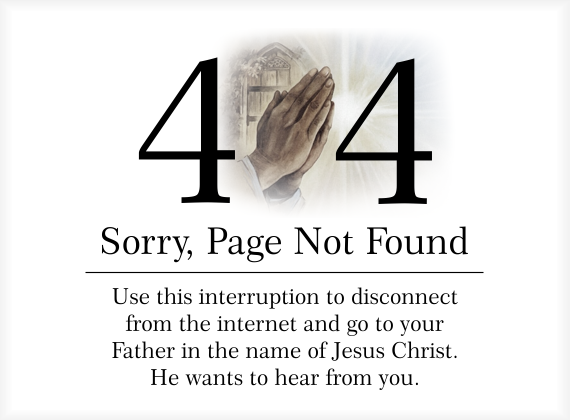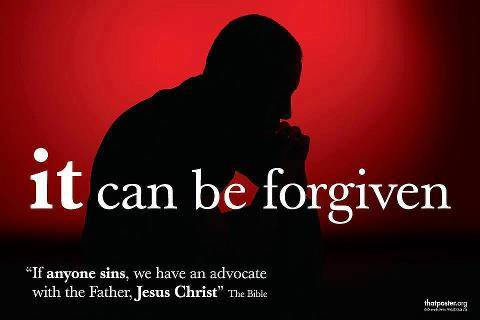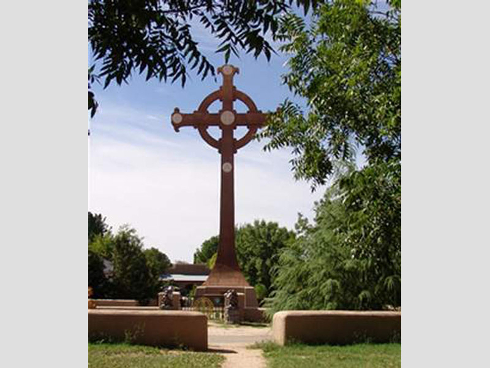
An Overview of Worship
by Wayno Guerrini
May 10, 2018
Full Disclosure:
The outline for this talk was taken from:
(Francis Schaeffer Institute, God’s Pattern for Worship as viewed on May 10, 2018)
It is a very comprehensive article. I used the article as a template and interwove my comments with theirs. Direct quotes are so noted in the text.
This is a rough draft. I apologize if the transitions are choppy.
An audio version of this lesson is also available, if you want to listen.
———-
Worship conjures in the mind stirring renditions of music, emotionalism, and gushy sentimentalism. Worship is none of these. It is perhaps the most mis-understood aspect of Christianity today. We have preconceived notions of what worship is, and what it is not. If hard pressed, very few could adequately define its meaning, let alone grasp its importance to the life and well being both individually, and corporately to the church at large.
Let’s start with what Worship is not. Worship is NOT routine. It is not something we do to occupy time on Sunday mornings between 9 am and 10:30. It is not mundane. It is not ordinary. Yet to many, it is the only time of the week, when the concept of worship enters our minds.
Worship is NOT for unbelievers. A worship service is designed for believers who have been redeemed by Christ to praise Him. An unconverted person (one who has not surrendered their life to the Lordship of Christ) is incapable of of worship. How many wait in joyful anticipation of a Sunday Worship Service? Certainly fellowship is part of the reason many attend church. But our focus is on me, and not Christ. What is the reason you attend church on Sunday morning?
Worship should be relational. And it should be impacting. Let’s delve into those aspects in more detail.
Many of us seem to have the concept that God is somehow a cosmic bell boy. He waits for our call to do whatever we command. It’s not like that. God is personal, not distant. Worship is a call to express our gratitude and gratefulness for God’s un-merited favour bestowed freely on us. The worship dynamic involves relationship between the Creator and the created. The relationship starts when a person surrenders to the Lordship of Christ (Rom 10:9-10).
Worship is centred in relationship. We come with no expectations save to acknowledge our need for a Saviour. Psalm 100 serves as an ideal focal point to begin our discussion:
A Psalm for giving thanks. / Psalm 100
Make a joyful noise to the Lord, all the earth!
Serve the Lord with gladness!
Come into his presence with singing!
Know that the Lord, he is God!
It is he who made us, and we are his;
we are his people, and the sheep of his pasture.
Enter his gates with thanksgiving,
and his courts with praise!
Give thanks to him; bless his name!
For the Lord is good;
his steadfast love endures forever,
and his faithfulness to all generations. (Psalm 100:1-5 ESV)
I like what verse 2 says: “Know that the Lord (or Self-Existant One), is God.” What is the first step? Psalm 46:10 reminds us: “Be still, and now that I am God.” It means removing ourselves from the thoughts and cares of the world, so that there is a singularity of thought. God. Remove the clutter and distractions of this temporal existence, into the realm of knowing God personally. That requires relationship; not lip service. Verse 2 later states: It is he who made us, and we are his. Does your life and attitudes reflect a dedication to the Saviour, or the world? Matthew 6:24 reminds us that “no one can serve two masters.” Whom do you serve. The World, or Christ?
The promise of God is found in the Old Testament. Ezekiel 36:26-27
And I will give you a new heart, and a new spirit I will put within you. And I will remove the heart of stone from your flesh and give you a heart of flesh. 27 And I will put my Spirit within you, and cause you to walk in my statutes and be careful to obey my rules. Ezekiel 36:26-27 ESV)
Worship only takes place in context of relationship. God will circumcise our heart of stone, and give us in return a heart of flesh, that yearns to worship. This relationship requires a commitment on our part to the honesty and veracity of Scripture itself. What is the Bible then? It is the story of a trustworthy God revealing himself, in a trustworthy manner. Our focus needs to be anchored in eternity (Ecclesiastes 3:11) not this world. Where is your focus? The World or God?
Why is an eternal perspective important? If our hearts are not focused on things that have an eternal value, then life becomes dross and becomes meaningless; devoid of both meaning and purpose. Our focus must be vertically oriented (Heaven-ward), not horizontal. Heaven not the world. Our focus gives definition to our purpose and goals. Larry O. Richards said it best: “We must live in a post-Christian world, but God wants to inoculate us, from its value system.”
Worshiping God requires a daily commitment to truth renewal. You won’t grow as a Christ Follower if your Bible remains unopened on your desk. Truth renewal is daily. Romans reminds us:
I appeal to you therefore, brothers, by the mercies of God, to present your bodies as a living sacrifice, holy and acceptable to God, which is your spiritual worship. 2 Do not be conformed to this world, but be transformed by the renewal of your mind, that by testing you may discern what is the will of God, what is good and acceptable and perfect. (Romans 12:1-2 ESV)
A living sacrifice. You know what the problem is with a living sacrifice? We crawl off the alter. We are enticed by our desires and a penchant to glorify our flesh. Did we forget the words of the Disciple’s Prayer. Matthew reminds us: Your kingdom come, your will be done, (Matt 6:10 ESV). His will, not ours.
I would be remiss if we didn’t talk about music as an aspect of worship. Today, as John Mac Arthur said: “We have people with no talent, playing music with no meaning, except to debase the culture.” It is a testament of how far removed from God, society really is. Music is NOT worship.
But it can be a component of worship. Worship is the heart of man ascending to God in thanksgiving and gratitude. Music is music. Worship is worship.
David Hart was both my Pastor, and my friend. Dave and I carefully did research for Dave’s book: “It’s all Rock and Roll to Me.” I was his research assistant. All of the pull out quotes you see in the book, are ones I gleaned from reading countless magazine articles on each band and compiling a profile based upon that research.
Dave said this: …”Today’s music shouldn’t be so easily dismissed by Christians. It invades every portion of our lives and affects every aspect of our being: body, heart mind, soul and spirit. Anything with his much potential power in our lives should be examined more carefully for its spiritual impact. After all, the Bible says we are to take every though captive to the obedience of Jesus Christ. (2 Cor 10:5) (Hart, David S. (1996). It’s All Rock-n-Roll to Me. (pp 7) New Song Publishers)
The original intent of music is to uplift the soul and spirit and to bring praise to the Self-Existant One. That purpose seems lost today. Youth Specialties co-founder Wayne Rice and I were part of the National Network of Youth Ministers in San Diego, California. He had this to say:
Jesus forsook the beautiful music of the heaven-lies to become a man and endure the music of sinful humanity. He couldn’t save us from a distance and he didn’t. In the same way, we who do youth work believe in incarnational youth ministry. That means we believe it is important to enter the world of today’s youth and try to speak their language. Otherwise they wouldn’t hear what we have to say….But we can’t do that by remaining aloof. We can’t do it from a distance. We must show kids [and others] that we are interested in their world, and one good way to do that is to pay attention to the music they enjoy.
Many people today lament the “power” of rock music over our kids. Some like to blame the music for all sorts of problems and attitudes that are so evident in today’s youth culture. But if rock music and other forms of entertainment have any power at all, it is the power by default. It only flies the void left by the absence of significant [relationships] in their lives.
[People] won’t listen to us when we simply criticize and scold. But when we listen to them – and their culture – they become much more receptive to the guidance and direction that we offer. (ibid, Hart, pp 5-6)
For me, I have found if I can get a kid to talk about the music they listen to, I have a window to their internal world. I created a bridge into their life. What’s going on in the inside. I am going to date myself here. Groups like Van Halen and Madonna promote hedonism. That is the “eat, drink and be merry philosophy.” Materialistic, and self-centred. Sound like anyone you know.
Groups like Nirvana and Nine Inch Nails promote Nihilism. Destroying something, until there’s nothing.
If life is meaningless you can respond in two ways: you can give them despair, or your can make them laugh. Groups like Anthrax and Gwar. Or perhaps the philosophy of or rage and rebellion. Groups like Metallica, Cannibal Corpse, Deicide, Morbid Angel, Ice-T.
What are you feeding your soul? Are you feasting on the world’s music, or music that transcends and brings glory to God? Lamentations 3: 21, 24, 26) reminds us: This I recall to my mind and therefore I have hope…the Lord is my portion, saith my soul, there fore I will hope in Him. It is good that a man should have both hope and quietly wait for the salvation of the Lord.
This can only occur if our focus is on the eternal, not the temporal. Music needs to be evaluated as to its impact, spiritually and morally. The deeper meaning of music is not just tune, lyrics or beat, but we need to carefully examine the lifestyle that created the music. What does it say?
Worship means we are to Glorify our Lord.
There is no place in scripture that talks about boredom and worship. If our focus becomes detached from Christ, we will be bored. We must first engage our hearts. Form is not as important as function.
What is the chief purpose of man? To sit around and grumble and complain about life’s lot? Or as the Westminster Confession reminds us, the chief purpose of man is to glorify God and enjoy him forever. We must be laser beam focused on His will, and not ours. It means surrendering.
People will ask, how should we begin to evaluate what we do? What criteria would you use? Should we use the old mantra of What Would Jesus do? While that may sound like the right platitude, it is not. This puts God in situations that are not biblically based. Instead we should ask: Soli Deo Gloria? How does what I propose to do, bring honour and glory to Christ?
As some of you know, I recently abandoned Facebook. Why? I was tired of all the vitriol and acerbic commentary played out on my Facebook Wall everyday by those of political extremes. Stop for a moment (and I am preaching to myself here). How does making snide comments about politics on my Facebook Wall, bring Glory to God? I am reminded of these words from Proverbs:
When there are many words, transgression is unavoidable,
But he who restrains his lips is wise. (Proverbs 10:19 NASB)
Unless you are talking about praying for leaders (as we are commanded in 1 Tim 2:1-2) my opinions do not bring God the Glory. It’s all about Him. NOT me. That’s one of the reasons why I nuked 100 vitriolic contacts from Facebook last night. So I can focus my attention on God, and not the world.
I have done something that I don’t normally do. I put my phone into airplane mode. No internet. No messages. No charming bells or whistles. I can begin focusing my attention on serving God and his people, not divisive politics. Life is again, wonderful.
Let’s focus on what unites us. Our common belief that there is salvation through Christ alone.
Worship means we are to Fear our Lord
Fear in the old testament (yir’ah) is perhaps better translated as reverence with trembling. Proverbs 9:10 might be better translated: “The [holy] reverence of the Self-Existant One, is the beginning of wisdom.” If we have reverence for God, we not only have respect for the person, but it means we also have a relationship. But the flip side of that is we also know that God judge’s righteously, and our disobedience, results in death (Rom 6:23). Not just physical. Spiritual. I like the way the New Living Translation puts it:
“Don’t be afraid of those who want to kill your body; they cannot touch your soul. Fear only God, who can destroy both soul and body in hell.” Matthew 10:28 NLT
Let’s continue on the sojourn of worship. Worship means we are to fear Our Lord. We come to God in humility (1 Peter 5:6). The fear helps us realise God’s holiness and our unworthiness. It means God first; me second.
Worship is to be Real
I like what the Francis Schaeffer Institute had to say: “We need to know Him before we can truly honour Him.” The purpose of a gathering is to worship Christ. He wants our heart, not our abilities. “The congregation is the performer. The worship team is the leader. God is the audience. Don’t mix that up!” (opcit Schaffer)
We worship out of a heart of gratitude to Christ. It is not about me, it’s about Him. Soli Deo Gloria. To the glory of God alone. How many people fall into the pattern of worshiping God with their lips, and not their hearts? (Matt 15:8 “‘This people honours me with their lips, but their heart is far from me;” ESV). The “fake it to you make it” is never a part of worship.
God is a Spirit: and they that worship him must worship him in spirit and in truth. (John 4:24 KJV)
Remember the words of Christ:
36 “Teacher, which is the great commandment in the Law?” 37 And he said to him, “You shall love the Lord your God with all your heart and with all your soul and with all your mind. 38 This is the great and first commandment. 39 And a second is like it: You shall love your neighbour as yourself. 40 On these two commandments depend all the Law and the Prophets.” (Matt 22:26-40 ESV)
What is our attitude? Do we pay lip service, or do we worship because of who God is, and what he has done for us? (Rom 2:4 – God’s kindness is meant to lead you to repentance ESV).
Worship is to Praise God
Hebrew 13:15-16 reminds us:
15 Through him then let us continually offer up a sacrifice of praise to God, that is, the fruit of lips that acknowledge his name. 16 Do not neglect to do good and to share what you have, for such sacrifices are pleasing to God. (ESV)
Through Jesus, therefore, let us continually offer to God a sacrifice of praise ⎯ the fruit of lips that confess his name. And do not forget to do good and to share with others, for with such sacrifices God is pleased. (Hebrews 13:15-16)
Our offerings today are not about dragging our livestock or pets to be sacrificed. Jesus was our sacrifice. So then, what do we bring? We bring ourselves! We bring a heart that desires Him, a will that is surrendered to Him, and a life that is dedicated to Him. Our sacrifice today is what flows from our heart, our love and adoration of our Lord. We are to be so full of love for our Lord that it flows to those around us. Our praise, as drawn from this text, is a peace offering of thanksgiving. This means our Lord wants us to be devoted to Him with our whole being, all the time and in all that we do.
There should be no circumstance we could ever face where praise does not flow from our lips. Our
praise is to acknowledge Christ alone, by faith alone, and by His grace alone. There should be nothing from us but that faith. What we have to sacrifice is our person, ability, and availability to His purpose. When we first give ourselves, everything else will be easy because pride and hoarding will be eliminated as well as materialism. We can sacrifice our wallets and purses to His service. Time, talents, and treasures should flow willingly from us to Him in service with joy and gladness. This involves our intellect in knowing Him as well as our emotions in praising Him.
The biggest praise is what flows from our lips. The thanksgiving for His saving grace should flow with passion and conviction. The primary testimony that we are effectively praising God is the result our praise has on our friends, family, and neighbours. When we are in a healthy relationship of praise, the church reaps benefits of health and vitality. This beckons to the world who our Lord is and what He does. This is the sacrifice of praise because it distracts from our ego and self and points toward His presence. True praise places our focus on our Lord and helps remove us from our sin and selfish nature. (op cit Schaffer)
Impacting Worship
When we hear the word impact, most of us think about cars being impacted. But in this case, impact becomes a change agent. God impacts us, and we in turn impact the world around us. It continues the relationship we have with God, re-affirming His sovereignty and Lordship in our lives. A life committed to the Kingdom which is yet come, and not the vane trappings of the world. Again, our focus must be eternal, not ephemeral.
How much of what Christ has done for us, do we give back to God? A fraction, or as Romans reminds us, a living sacrifice. Romans 13:10 tells us: Love does no wrong to a neighbour; therefore love is the fulfilling of the law. (ESV)
If love is the fulfillment of the law, then how to begin to let God use us to change our corner of the universe? “No Christian, no matter what the education or an their job title, can grow, mature and lead purpose driven lives, if we do not have the correct reverential view of God (Hebrews 11:6: And without faith it is impossible to please him, for whoever would draw near to God must believe that he exists and that he rewards those who seek him. ESV). (op cit Francis Schaeffer)
Real impacting worship will help us connect to God, then to one another, and then to the community. When we are not impacted, we are not worshiping rightly, and our connections with God and others will be skewed and messed up. (op cit Schaeffer)
Finally, lets examine our priorities in Worship.
Priority One – Commitment to Christianity
Love. Worship. Praise God. Psalm 42 reminds us: As a deer pants for flowing streams,
so pants my soul for you, O God. 2 My soul thirsts for God, for the living God. (Psalm 42:1 ESV)
Abide. To remain. We know who God is. We need to be rooted in Christ, otherwise, as it says earlier, we will die. Only when we are rooted in Christ are we receiving our sustenance from Him, and can continue to mature. How do we abide? Prayer is our connection. Our link that like a chain, is forged. Our obedience to the commands of Christ, result from a focus on worship.
Are we worshiping out of obligation, out of social reasons, or out of habit? Or do we worship out of a response to His deep love for us? Is our worship so formatted that we never see his presence, or is our worship so hard that we are as dry as the effort we put into it? Spurgeon wrote “We ought to be Prevalent pleaders, and not formal worshipers.” (op cit Francis Schaeffer)
Priority Two – Commitment to the Body of Christianity
Are we committed to serving the needs of others…or do we focus upon self? A commitment to the body of Christ, embraces the idea servant-hood. What did Christ say? The greatest among you shall be your servant. 12 Whoever exalts himself will be humbled, and whoever humbles himself will be exalted. (Matt 23:11-12 ESV)
In a post-Christian era – we tend to forget other people have needs. Maybe it is helping a neighbour who is infirm go to the store. Running errands for them. Cooking a meal. Spending time. Listening to a heart that has been touched by the heartache of loss, grief, or loneliness.
I believe it was Lucy Maud Montgomery, the author of Anne of Green Gables who said: “Grief is the price we pay for love.”
Often we will find that: The loneliest people are the kindest. The saddest people smile the brightest. The most damaged people are the wisest. All because they do not wish to see anyone else suffer they way they do.
–Anonymous
We are ambassadors of the King. Do we display that to others…or do we prejudge based upon some external value system? God gave us 2 ears, and 1 mouth. Listen twice as much as you speak.
For you were called to freedom, brothers. Only do not use your freedom as an opportunity for the flesh, but through love serve one another. 14 For the whole law is fulfilled in one word: “You shall love your neighbour as yourself.” 15 But if you bite and devour one another, watch out that you are not consumed by one another. (Galatians 5:13-15 ESV)
Live in harmony with one another. Do not be haughty, but associate with the lowly. Never be wise in your own sight. Romans 12:16 ESV)
Minister to the needs of those around you. This too, is a form of worship; taking care (ministering to) of the body of Christ.
Priority Three – Commitment to the Mission of Christ
The church, of necessity MUST be evangelical. What do I mean by that? If we are to change our corner of the universe (notice I did NOT say the world), we must focus on Christ’s command: Go into all the world and proclaim the gospel to the whole creation. Mark 16:15 ESV That doesn’t mean occupancy in a pew only on Sunday morning. It means the Gospel gets out of the chair, has 2 legs, and can walk and talk.
Our lives are a reflection of our commitment to Christ, and to worship. Through us, and our lives, we have a place in the ministry to others. Not by people seeing our mouths flapping. By people seeing our life working. We are the only testament someone will read. How important is it to have Christ’s compassion indwell us, so that we can minister to those in need? Our mouths will not convince anyone of God’s love. Your life, will.
How is your life working these days? Does it send a warm inviting tone to people, or are they blasted away through our judgmental attitude and prejudices? Make it a priority in your life to be amongst those who bless people, (Romans 12:14) and don’t curse them.
Let people see …the love, joy, peace, patience, kindness, goodness, faithfulness, 23 gentleness, self-control; Galatians 5:22-23 (ESV)
Conclusion
I purposely did not define worship earlier. Because I want you to leave with this singular thought: Worship (proskuneo in Greek) has the idea of turning and kissing. Like a dog that laps its owner’s face. That is what worship means. The dog doesn’t care about food. He doesn’t care about the needs he might have. He is focused upon one thing and one thing only: His Master.
Is your heart turned toward Heaven, or the value system that the world proffers? If these words have spoken to your heart today, please come and see me, Pastor Dan, Tim or Michael afterwards.



















